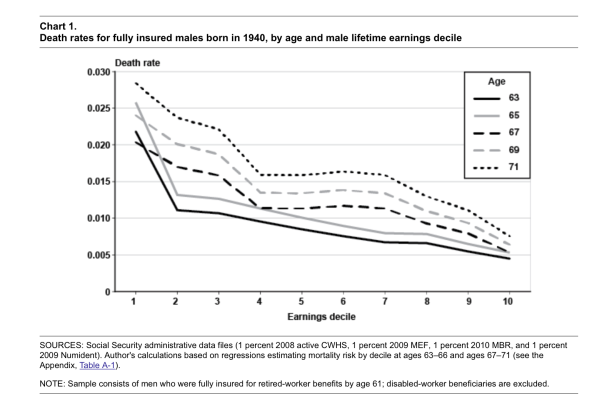NW-Bound
Give me a museum and I'll fill it. (Picasso) Give me a forum ...
- Joined
- Jul 3, 2008
- Messages
- 35,712
Yes, it all comes down to a person knowing his/her specific situation better than the overall statistics would indicate. Still, a lot is left to chance when it comes to longevity.
I'd rather have a long life, everything else is secondary. Perhaps it's because I happen to be able to live off my stash, and SS is just a reinforcement. But people who happen to draw it early and find themselves still alive at 90 should be reminded that having such a long life is a blessing already. They want to be rich too? As rich as Steve Jobs?
I'd rather have a long life, everything else is secondary. Perhaps it's because I happen to be able to live off my stash, and SS is just a reinforcement. But people who happen to draw it early and find themselves still alive at 90 should be reminded that having such a long life is a blessing already. They want to be rich too? As rich as Steve Jobs?
Last edited:


